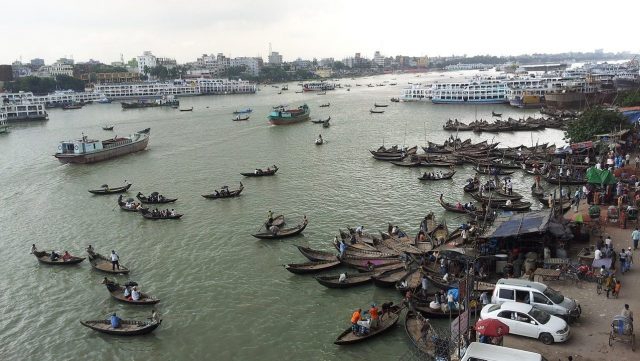Why do human trafficking cases take so long to proceed in Bangladesh’s courts?
A lot it has to do with witness intimidation and bribery.
In one case from 2007, four-and-a-half-year-old Ritu disappeared after her neighbor, a rickshaw driver named Huda Mia, asked her aunt if he could look after the girl for a bit. He promised to bring her back within the hour.
Instead, Ritu disappeared, and it wasn’t until ten days later another neighbor spotted Ritu at a park with Huda Mia and two of his relatives, Shakwat Ali and Shafiqul Islam. When the police caught them, they confessed that they had intented to sell Ritu to traffickers who would take her to India.
The accussed appeared in a Dhaka court two months later, but the case came to a halt as there was no witness testimony. All the men were released on bail and the case was halted. Ritu is now 16-years-old and it looks like she will never get justice.
The Dhaka Tribune explains why this case is so common across the country:
According to the Prevention and Suppression of Human Trafficking Act 2012, a court must frame charges within 90 days, and trial must be completed within 180 days.
According to section 21(2) of the Act, the government is obliged to set up an Anti-human Trafficking Offence Tribunal to speed up trials, but it is yet to be established. As a result, the cases filed before 2012 are all being tried at Women and Children Repression Prevention tribunals.
In December 2017, Dhaka Metropolitan Police (DMP) gathered information from Dhaka courts about the number of cases that have been under procedure for the last 10 years.
26 cases are currently undergoing trial at three Women and Children Repression Prevention Tribunals of Dhaka, all of them filed at least 10 years back.
The oldest pending case is 17 years old.
Arfan Uddin Khan, a former public prosecutor of Women and Children Repression Prevention Tribunal in Dhaka, said that the problem boils down to witness intimidation and bribes.
“Most of the witnesses are kept silent with bribes,” said Arfan. “Majority of the witnesses come from poor financial backgrounds, and they are negotiated to keep quiet.”
Arfan added that both the police and prosecutors are responsible for bringing witnesses to court, and tribunal judges can take punitive action against them if they fail to do so. “But courts rarely do that,” he said.
“Witnesses do not come forward for many reasons, including pressure from the accused,” he said. “As a result, verdicts often go in favour of the accused.”







Freedom United is interested in hearing from our community and welcomes relevant, informed comments, advice, and insights that advance the conversation around our campaigns and advocacy. We value inclusivity and respect within our community. To be approved, your comments should be civil.